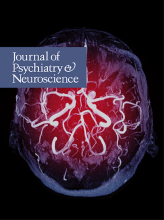Abstract
Current methods of assessment in clinical psychopharmacology have several serious disadvantages, particularly for the study of social functioning. We aimed to review the strengths and weaknesses of current methods used in clinical psychopharmacology and to compare them with a group of methods, developed by personality/social psychologists, termed ecological momentary assessment (EMA), which permit the research participant to report on symptoms, affect and behaviour close in time to experience and which sample many events or time periods. EMA has a number of advantages over more traditional methods for the assessment of patients in clinical psychopharmacological studies. It can both complement and, in part, replace existing methods. EMA methods will permit more sensitive assessments and will enable more wide-ranging and detailed measurements of mood and behaviour. These types of methods should be adopted more widely by clinical psychopharmacology researchers.
- Received November 1, 2004.
- Revision received June 11, 2005.
- Accepted September 6, 2005.






